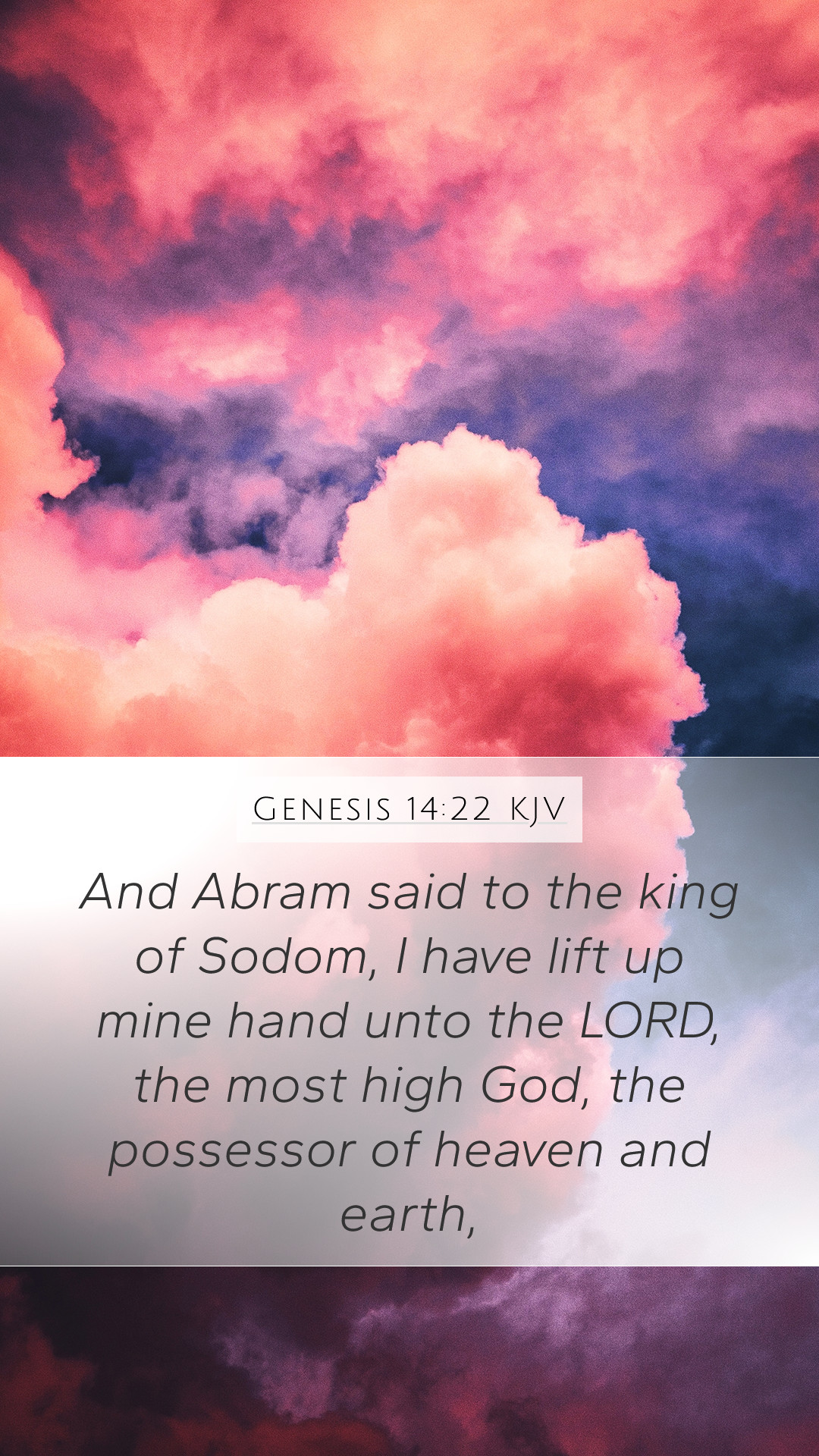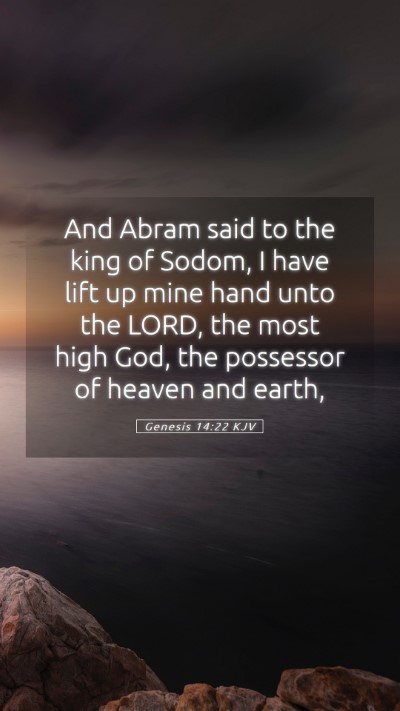Bible Verse Commentary on Genesis 14:22
Genesis 14:22 reads: "But Abram said to the king of Sodom, 'I have lifted my hand to the Lord, God Most High, Creator of heaven and earth, and have taken an oath.'" This verse captures a pivotal moment in the life of Abram (later known as Abraham) and offers profound insights into his faith, integrity, and recognition of God's sovereignty.
Summary and Interpretation
This verse can be unpacked through various dimensions of meaning derived from biblical commentaries.
Faith in the Most High God
Abram's declaration of having "lifted his hand to the Lord" signifies an act of worship and a solemn oath. According to Matthew Henry, this act reflects Abram’s deep commitment to God, showcasing his devout faith in the "God Most High" who is acknowledged as the Creator of heaven and earth. This acknowledgment serves as an example of placing absolute trust in divine authority, compelling readers to consider the strength of their own faith.
Integrity in Dealings
Albert Barnes emphasizes that Abram's refusal to accept anything from the king of Sodom illustrates his desire to maintain integrity and separation from the evil ways of the world. By swearing allegiance to God rather than the king, Abram sets a powerful example of how believers should navigate worldly temptations and maintain their moral compass. This stance highlights the importance of ethical boundaries, especially in situations where personal gain could compromise one’s values.
Divine Sovereignty
Adam Clarke elaborates on the significance of calling God the "Creator of heaven and earth." This phrase is an acknowledgment of God's ultimate authority and power. It denotes that God is the source of everything, thereby reinforcing that all blessings and victories ultimately stem from His grace. Abram's recognition of God’s sovereignty serves as a reminder for believers to remain humble and grateful for God’s providential care.
Contextual Significance
The context of Genesis 14 reveals a landscape of conflict and alliances among various kings. Abram’s victory in rescuing Lot and his subsequent encounter with the king of Sodom presents a critical learning point, asserting that true victory is not solely in military achievements but in aligning with God's will. This blend of historical events with theological implications enriches one's Bible study insights.
Application of Bible Verse
When applying this verse to daily life, one can reflect on the importance of making commitments rooted in faith and integrity. In an age where moral dilemmas abound, determining which commitments are made in honor of God can guide believers toward aligning their actions with biblical values. Not only does this encourage a steadfast relationship with God, but it also fosters a culture of trust within communities and Bible study groups.
Cross References
- Hebrews 7:1-2 - Discusses the priesthood of Melchizedek and honors Abram's act of giving a tithe.
- Genesis 15:1 - God reassures Abram about the rewards of faithfulness.
- Psalm 110:4 - References the everlasting priesthood of Melchizedek.
- Romans 4:20-21 - Illustrates Abraham's unwavering faith in God's promises.
Conclusion
In conclusion, Genesis 14:22 encapsulates extensive bible verse meanings within a few words. Its implications of faith, integrity, and divine acknowledgment resonate throughout Scripture and in the lives of believers. For those engaging in online Bible study or seeking tools for deeper insights, this verse serves as a compelling reminder of the importance of unwavering commitment to God and ethical living in a complex world.


